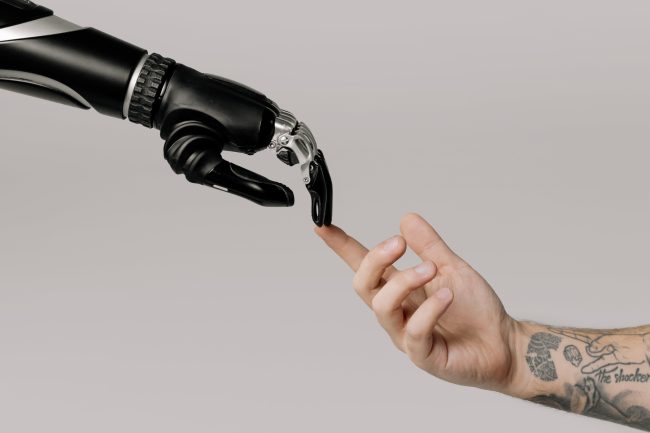Every year, Accenture Song develops ‘Life Trends’ to provide insight into the relationship between individuals and their behaviors and attitudes towards their surroundings, encompassing aspects of business, technology, and various societal changes.
The Customer Connection Conundrum
Essential reductions within companies have led to a decreased focus on customer-centricity, a change that consumers are starting to notice. Historically, businesses have prioritized customer needs in every decision, understanding the link between positive customer experiences and revenue growth. However, current economic pressures are necessitating compromises that are affecting customer spending. Brands now face the challenge of maintaining their place in consumers’ purchasing choices over the long term without burdening them with increased costs.
In an effort to safeguard profits amidst economic difficulties, companies are making hard choices, leading to a deterioration in customer experiences. This includes reductions in product quality or size, a drop in service standards, shortcomings in customer support, and the introduction of unwelcome subscriptions. These changes give the impression that brands are subtly backing away from their commitments. The heart of this issue is a perception problem: actions taken by companies for survival are sometimes perceived by customers as greed.
Both brands and consumers are faced with the need to cut costs. If brands persist in this direction, customer frustration will likely increase, negatively impacting long-term success. Customer loyalty is compromised in financially tight situations, with price and value becoming key factors in purchasing decisions. An emerging risk is the concept of “liquid suspicions,” where disappointment with one brand can lead to distrust in others.
Efficiency measures that result in losing customers are counterproductive. Prioritizing customer experience is essential for growth and should be a collective focus across service, marketing, and design departments. Future strategies should aim to eliminate factors that cause customer dissatisfaction, invest in brand value, and achieve a new equilibrium. For instance, up to 47% of customers feel less valued when they encounter problems in reaching or receiving support from customer service representatives.
AI’s Personal Touch
Generative AI is transforming the way people interact with the internet, shifting from a mere transactional platform to a more personalized and engaging space. This technology is enhancing digital experiences in areas such as information gathering, communication, and shopping. AI facilitates interactive dialogues, enabling users to articulate their needs more effectively, moving from basic requests to more specific desires.

Mike Chai
Users are expected to feel a greater sense of being understood, making it simpler to locate online products, services, and experiences that are most relevant to them. About 39% of individuals between 18 and 34 years old are enthusiastic about receiving conversational responses rather than standard internet search results. Additionally, 42% feel comfortable using conversational AI for product recommendations.
The adaptable capabilities of this technology offer businesses a remarkable chance to craft brand representations that are more human-like and relatable, fostering significant customer relationships. Brands now need to redefine the virtual persona of their company, deciding on its sound, appearance, and personality traits, tapping into the brand’s essence.
Creative Crossroads
Creativity, traditionally focused on engaging the audience, is increasingly becoming reliant on navigating the technological landscape. The primary goal of creativity was to elicit emotional responses through imaginative expression and human touch. However, the increasing role of algorithms and technology as intermediaries between the creator and the audience risks leaving creative works unnoticed and can sometimes negatively affect the final product. This raises the question: are we on the brink of a cultural standstill? Both entertainment and brand content appear to be losing their freshness, emphasizing the need for genuine innovation.
In challenging economic times, innovation budgets are often among the first to be reduced, despite the fact that originality fuels excitement and emotional engagement, setting brands apart in the market. While it may seem sensible to stick with proven methods, embracing boldness can be advantageous.
Consumers often express frustration with the repetitive nature of content, noting an overreliance on dull and unimaginative remakes and series. They also tend to find little distinction in app designs across different brands, with this perception being even more prevalent among those aged 18 to 24.

Pexels
The issue of mediocrity in creativity could intensify with the growing influence of generative AI in the creative process. Those who are perceptive will recognize the opportunity to stand out in a landscape dominated by familiarity by investing in creative talent and original ideas.
Companies should strategize for differentiation by allocating a budget for innovation, embracing risk by incorporating novelty, involving skilled creatives in the utilization of generative AI, and focusing on relevant metrics that support creative risk-taking.
Tech Tipping Point
Technology increasingly seems to be something that affects people rather than being a tool for their benefit. This shift raises the question of whether individuals are beginning to reclaim control over technology’s role in their daily lives. The interaction between people and technology is at a pivotal point, often feeling intrusive and not always contributing positively to well-being.
Digital technologies frequently compete for attention, even in simple activities like watching a movie, which creates barriers to achieving goals. The introduction of each new technology or platform forces people to evaluate its worth, often feeling overwhelmed by the rapid pace of change and its implications.
Many consumers claim that technology has made their lives as complex as it has simplified them. Moreover, some also believe that it is more crucial than ever to critically assess their use of technology. As technological advancements continue at a relentless pace, people must figure out how to shape a future that prioritizes their well-being and that of the planet.
Companies must address the growing frustration and exhaustion. They need to be mindful of how their technological offerings integrate into people’s lives, considering the time and new skills that they demand. Brands that provide more options in technology usage, allowing people to choose how they engage with it, will emerge as trusted allies, helping customers regain much-needed control over technology.

Google DeepMind
Redefining Life’s Journey
Conventional trajectories of life are undergoing significant changes due to emerging constraints, needs, and possibilities, leading to a notable shift in demographic patterns. The traditional journey to success, once defined by milestones such as education, career progression, marriage, homeownership, family, and retirement, is now being questioned due to evolving opportunities and challenges. This shift towards a more adaptable view of life is disrupting established demographic norms.
Previously, life’s blueprint was established in a different era, with less advanced technology and science, distinct gender roles, lifetime employment, and single incomes supporting average families. While progress has brought positive changes in inclusion, equality, medical advancements, and diverse opportunities, increased living costs and changing values are prompting people to reassess their priorities.
Consumers indicate that the pandemic and subsequent events have led them to reconsider their life decisions. Additionally, many now plan less than a year ahead, or not at all.
Traditional assumptions about age, gender, socio-economic status, or career stage are becoming less relevant for brands. New mindsets are forming, demanding a fresh approach to products and services. A focus on life-centered experiences allows brands to create offerings that challenge conventional norms. Businesses should be agile in adapting to these changes, seizing opportunities to support individuals in their unique life journeys.











